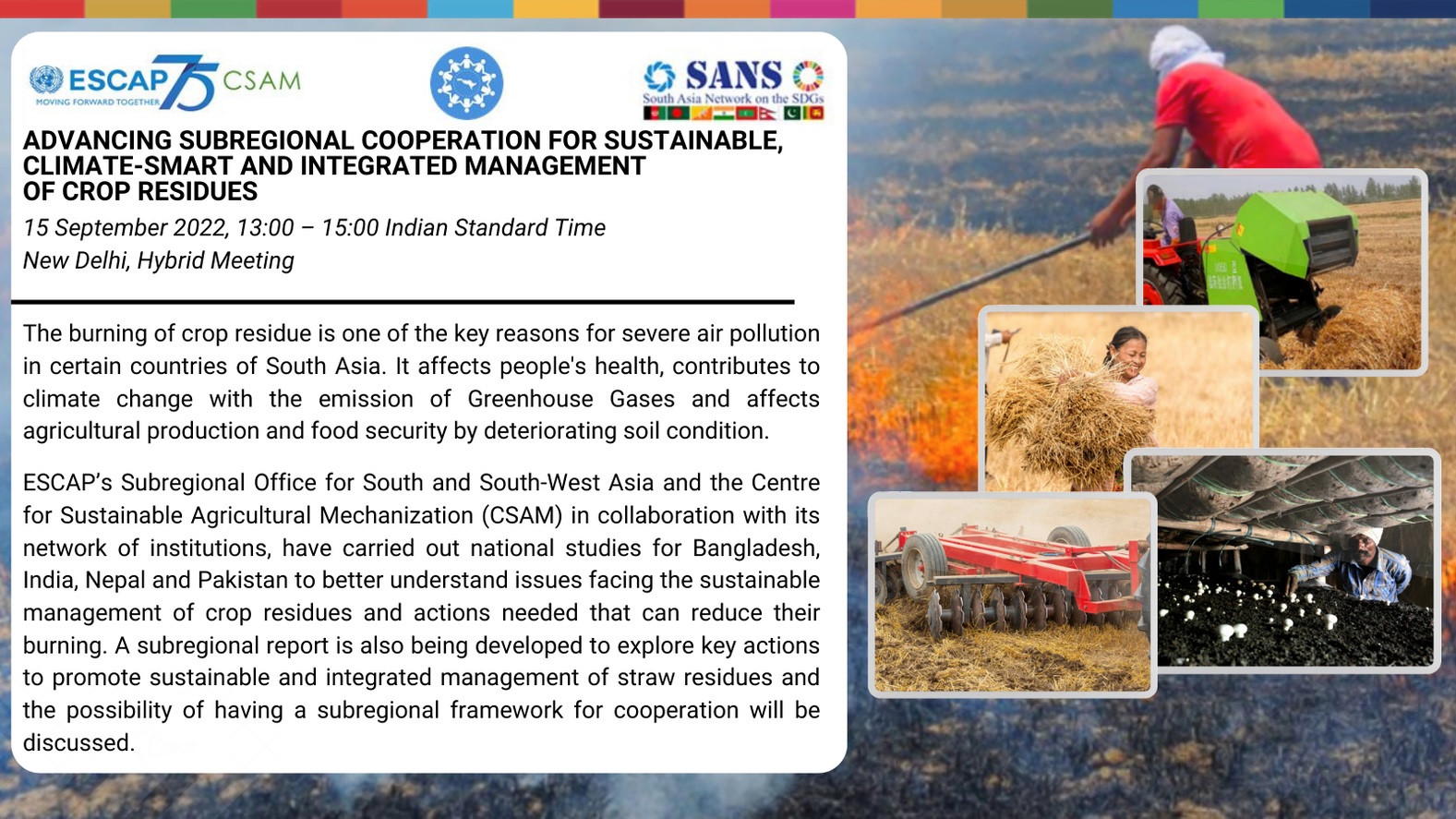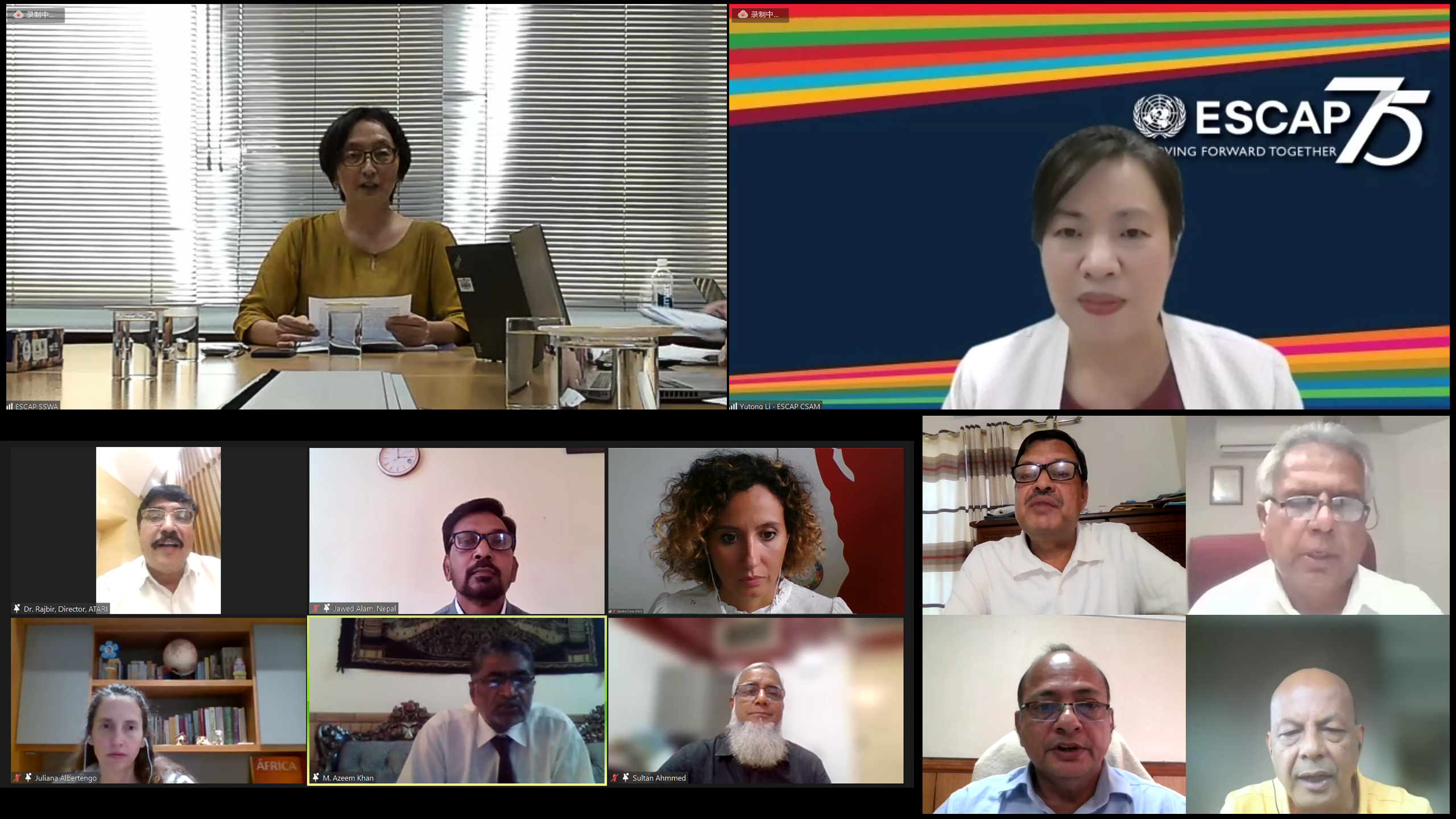ESCAP Meeting Advances Sub-regional Cooperation for Sustainable and Climate-smart Management of Crop Residues

Meeting Documents
The burning of crop residue is one of the important causes of severe seasonal air pollution in many countries of South Asia. It affects people's health, contributes to climate change with the emission of Greenhouse Gases and affects agricultural production and food security by deteriorating soil health. To highlight the issue and explore opportunities for cooperation, the United Nations Economic and Social Commission for Asia and the Pacific (ESCAP) convened a hybrid meeting titled ‘Crop Residue Management in South Asia - Advancing Subregional Cooperation for Sustainable, Climate-smart and Integrated Management of Crop Residues’ on 15 September 2022. This meeting was jointly organized by ESCAP’s Subregional Office for South and South-West Asia (ESCAP-SSWA) and the Centre for Sustainable Agricultural Mechanization (ESCAP-CSAM).
Presentations were made on the findings of national studies conducted for Bangladesh, India, Nepal and Pakistan, which especially highlighted the status of crop residue management, good practices/technologies of straw management (with particular emphasis on mechanization-based solutions), and proposed action plans for interventions at the national level. A draft subregional report developed to explore key actions and the possibility of having a subregional framework for cooperation to promote sustainable and integrated management of straw residues in South Asia was also presented.

The presentations were followed by a panel discussion of experts from national/government research institutions, universities, other United Nations entities and non-profit organizations from South-Asia as well as other regions who deliberated upon the findings of the national and subregional reports. While underscoring the need for a subregional cooperation framework for tackling the issue of straw burning, they emphasized the importance of undertaking further analytical work and data collection, making sustainable straw management economically attractive for farmers, enabling knowledge sharing and capacity building, and providing adequate policy support, among other areas.
Overall, the meeting enabled a vibrant and multi-stakeholder dialogue on the pressing need for improved crop residue management and how subregional cooperation can further this goal. Close to 100 participants from the Asia-Pacific as well as other regions attended the event.
A video recording of the event is available here.
